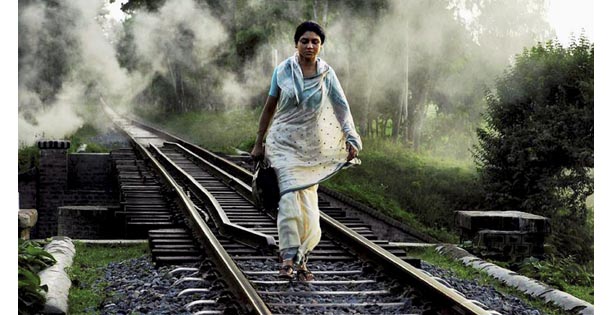ID :
217487
Thu, 12/01/2011 - 09:15
Auther :
Shortlink :
https://www.oananews.org//node/217487
The shortlink copeid
Birth of Bangladesh on the celluloid

New Delhi, Dec 1 (PTI) December is the month when every Bangladeshi is filled with as much pride as with pain. Pride because it is the "Bijoyer Maash"(The month of victory) for every Bangladeshi who got an independent country and pain because of the killings, rape and havoc unleashed by the Pakistani troops during the 15 day Liberation War in December 1971.
At the end of the day, however, celebrations prevailed as people set aside their personal grief and basked in the glory of hard-earned freedom.
How did the fortnight-long holocaust unleashed by the Pakistani army impact the life of ordinary Bangladeshis in remote villages and small towns and how the war for an independent homeland was won?
The answer will be available during a three-day feature film festival being organised in the eastern Indian city of Kolkata from December 9 this year to mark the 40th anniversary year of the Liberation War.
Six feature films with English subtitles made by four leading directors of Bangladesh parallel cinema late Tareque Masud, Nasiruddin Yousuf, Morshedul Islam,Touquir Ahmed and Badrul Anam Saud between 2002 and 2011 will be screened during the festival being arranged by the Bangladesh High Commission in India in collaboration with India’s Directorate of Film Festivals.
Actor-director Toukir Ahmed's "Joyjatra", based on well known novelist Amjad Hossain's "Obelay Osomoy" is the story of how Pakistani occupation forces attack a small village and burn the houses of innocent people, changing forever the villager's idyllic existence. The survivors have to flee their ancestral homes on a journey to reach a camp where they can be trained professionally in guerrilla warfare so that they can fight the enemy.
The only film in the festival package to have a out and out non-rural setting is Morshedul Islam's "Aamar Bandhu Rashed" which tells the story of the liberation war through the eyes of a young boy who explains the significance of the war to his school friends, helps the "Mukti Bahini" (Freedom Fighters) and saves a freedom fighter before he is killed by Pakistani army.
The most talked-about film will, of course, be Yousuf’s "Guerrilla", which won the best Asian film award at Kolkata Film Festival last month, for the sheer vastness of the canvass in which it captures the actions of the liberation war. Secondly, it also gives the most powerful picture of the unprecedented and voluntary participation of the women in the war through the story of Syeda Bilkis Banu, wife of a veteran journalist.
Bilkis overcomes her personal grief over the death of her husband and brother in the liberation war, helps the liberation war fighters before finally blowing herself up with explosives in order to escape from being defiled by the enemy. Bilkis is not an imaginary character but one seen by Yousuf himself from his own involvement in the war in and around Dhaka.
The films will showcase the talent of some leading names of Bangladesh’s actors who are as much at home on the small screen as on the big screen as also on the stage.
Among them are veterans like Raisul Islam Assad, Abul Hayat, his daughter Bipasha, Suborna Mustafa, Humayun Faridi, Pijush Bandopadhyaya, Rokeya Prachi, Swatilekha Guha, Bonna Mirza and Joya Ahsan whose powerful portrayal of the role of Bilkis in "Guerrilla" has earned wide critical acclaim.
An added attraction of the festival will be the presence of Joya, along with all the four directors whose films will be screened in Kolkata. Also in attendance will be Faridur Reza Sagar who has produced four of the six films. Sagar has produced several films in Bangladesh’s parallel cinema circuit where directors struggle to arrange funds for making this kind of movies.
To begin with, the festival, titled 'Bangladesh War of Liberation in Celluloid' will be held at Nandan-I in Kolkata from 9 to 11 December and then it will travel to Agartala in the northeast Indian state of Tripura in February 2012 and then on to New Delhi in March 2012.
Kolkata and Agartala have umbilical connections with the Bangladeshi liberation war as millions of people from that country had taken shelter in West Bengal and Tripura. PTI
Caption for pic: A still shot from acclaimed Bangladeshi director Nasiruddin Yousuf's latest film "Guerrilla" which will be screened at a special film festival in Delhi, Kolkata and Agartala to mark 40th anniversary of Bangladesh liberation. PTI Photo





